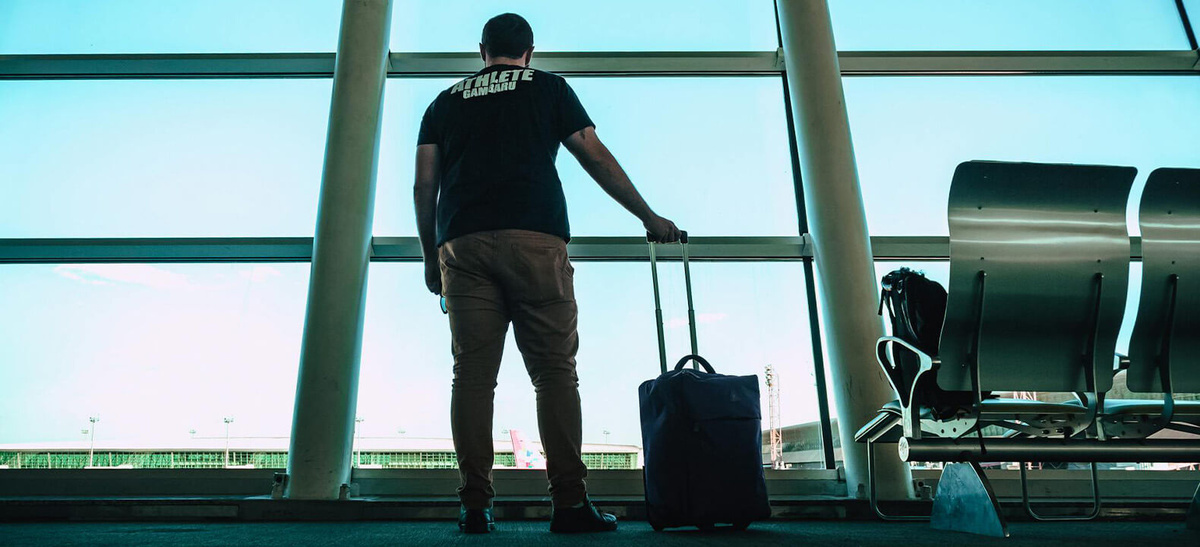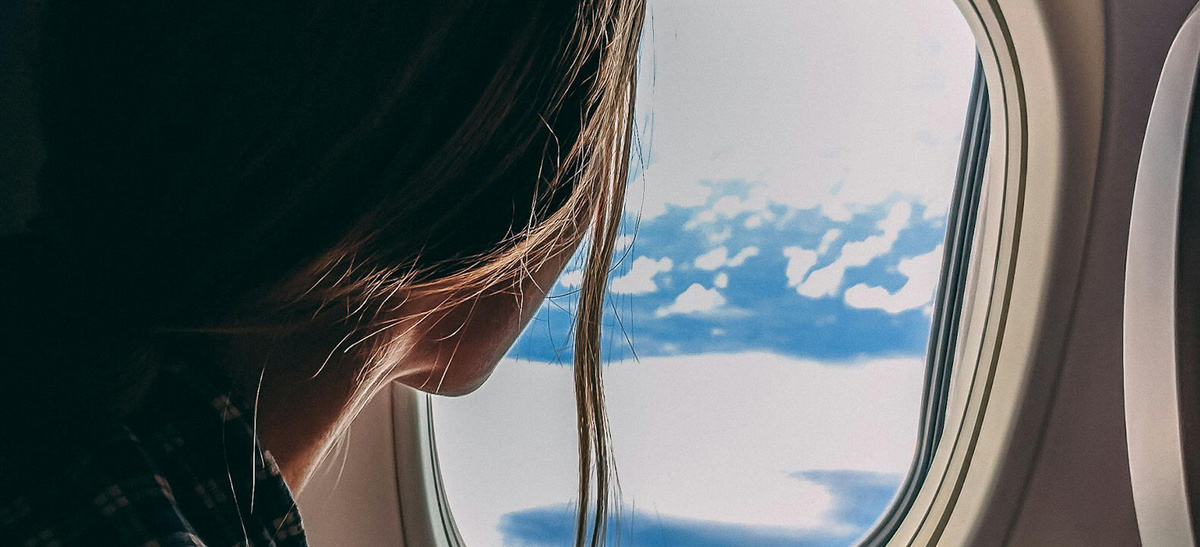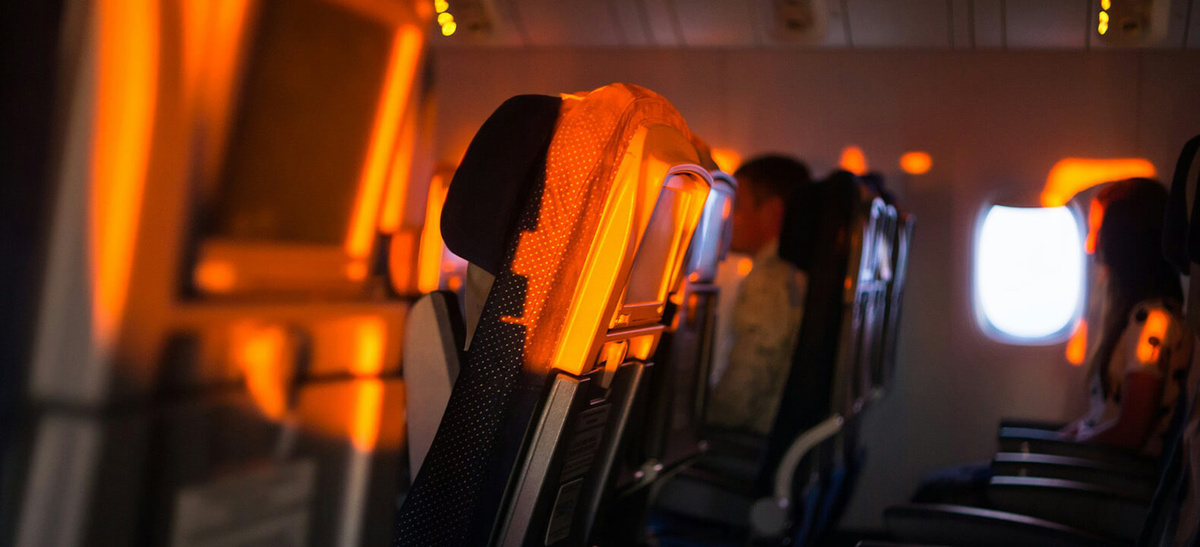
How to Overcome Fear of Flying: Expert Tips to Help You Relax on Planes
Many people experience a fear of flying, which can make air travel a stressful experience. Whether it’s the thought of being high above the ground, the sensation of turbulence, or the confined space within the cabin, this fear can affect anyone, regardless of how often they fly. For some, it may be triggered by a previous negative experience, while for others, the mere idea of flying can cause significant anxiety. Fortunately, the fear of flying is more common than most realize, and it can certainly be managed.
Overcoming this fear is possible and can lead to a more comfortable and enjoyable travel experience. In this guide, we’ll explore the causes of plane anxiety and offer practical strategies to help you conquer your fear. With the right approach, flying can become a more manageable and even pleasant part of your travels.
What Is the Fear of Flying Called?
Fear of flying is commonly referred to as aerophobia or aviophobia, both terms describing a specific anxiety disorder associated with air travel. This fear can manifest in various ways, ranging from mild unease to overwhelming panic at the thought of boarding a plane.
People who suffer from aerophobia often experience intense discomfort, sometimes even before the flight begins. Symptoms can surface at the mere thought of air travel and may include:
Mild Unease: Feeling nervous or unsettled about flying.
Overwhelming Panic: Experiencing intense fear that can lead to panic attacks.
Physical Symptoms: Sweating, trembling, rapid heartbeat, or shortness of breath.
It can stem from different places. For some, it may be linked to a fear of heights, while others may feel anxious about being in an enclosed space or losing control during the flight.
Impact on Daily Life
Aerophobia can significantly affect an individual's life:
Avoidance of Air Travel: Leading to missed opportunities for work or leisure.
Stress and Anxiety: Even thinking about flying can cause distress.
Social Limitations: Difficulty attending events that require air travel.
Identifying and understanding the underlying causes of this fear is crucial to managing it. Whether the fear is driven by turbulence, the unfamiliar environment, or a previous negative experience, acknowledging it is the first step toward overcoming aerophobia and gaining control over your flight experience.
Understanding Why You're Afraid of Flying
Plane anxiety can stem from various causes, such as:
Fear of heights (acrophobia): This fear is closely linked to a fear of flying, as some people feel uneasy about being so high above the ground.
Fear of enclosed spaces (claustrophobia): The confined cabin space of an airplane can trigger anxiety for those who dislike feeling trapped.
Turbulence and loss of control: Air turbulence can cause significant fear for passengers, leading them to feel a loss of control.
Previous traumatic experiences: A rough flight or negative experiences related to air travel can reinforce a fear of flying.
If you are scared of flying, identifying the root cause can help you address your specific concerns.

Image by Jason Toevs from Pexels.
How to Get Over Fear of Flying
Overcoming aerophobia isn’t always easy, but it is possible with a combination of preparation, understanding, and relaxation techniques. Here are some tips for dealing with the fear of airplanes:
1. Learn How Planes Work
Understanding the mechanics of flying can significantly reduce your anxiety. Airplanes are one of the safest modes of transportation, with rigorous safety protocols and trained pilots. Knowing how the plane stays in the air and how pilots navigate turbulence might help calm your nerves.
2. Practice Breathing Techniques
Deep breathing exercises can be helpful when you're feeling anxious. Try this technique: inhale slowly for four counts, hold your breath for four counts, then exhale for four counts. This type of rhythmic breathing helps reduce anxiety by calming your nervous system.
3. Distract Yourself
Bring along something to keep your mind occupied, such as a book, a podcast, or a movie. The more engaged you are in an activity, the less likely you’ll focus on your fear.
4. Start Small
If you're extremely afraid of flying, start with short flights to build confidence. Gradually increasing the length of your flights can help you get used to the experience and ease your anxiety over time.
5. Seek Professional Help
For some, fear of flying can be debilitating. Cognitive Behavioral Therapy (CBT) is a proven method that helps individuals face their fears and reduce anxiety. Many therapists specialize in helping those with aerophobia.
Tips for Reducing Anxiety Before and During Your Flight
Plane anxiety often starts before you even board the aircraft. The following tips can help ease your anxiety throughout your travel experience.

Image by Aleksei Zaitcev from Unsplash.
Relaxation Apps
There are many apps designed to help manage anxiety. Before your flight, download a meditation app, such as Calm or Headspace. These apps can guide you through relaxation techniques and help you manage your stress in real time.
How to Get Over Airplane Fear: A Long-Term Approach
Consider a long-term approach if you're looking for a permanent solution to your fear of flying. The following strategies can help you move past this anxiety over time:
1. Gradual Exposure
The idea behind gradual exposure is to gradually expose yourself to flying-related experiences in a controlled way. Start by looking at pictures of airplanes, then visit an airport, and eventually work your way up to taking short flights. Over time, this exposure can desensitize you to the fear of flying.
2. Join a Fear of Flying Course
Many airports and airlines offer courses to help individuals overcome their fear of flying. These programs provide education on flying, stress management techniques, and sometimes even a short flight with a therapist to help you confront your fears in a supportive environment.
3. Understand the Statistics
Flying is statistically safer than driving. The odds of being involved in a plane accident are extremely low, so keeping this in mind can help reduce fear. Planes are also built to handle turbulence, a common worry for those afraid of flying.
Managing Flight Anxiety Related to Cancellations, Delays, and Lost Luggage
For many travelers, anxiety about flying stems not just from the fear of being on an airplane but also from the unpredictability that can come with air travel itself—such as flight cancellations, delays, and lost luggage. These issues can trigger or exacerbate plane anxiety, as they create uncertainty and a loss of control over the travel experience. For individuals already dealing with aerophobia, the thought of a canceled or delayed flight can lead to heightened stress, making an already difficult situation worse.
Coping with Anxiety from Flight Delays and Cancellations
Unfortunately, flight delays and cancellations are a common part of air travel. According to regulations like EC 261, passengers are entitled to compensation when flights are delayed for more than three hours, canceled without sufficient notice, or overbooked.
Knowing that there are laws protecting your passenger rights can help reduce travel anxiety. In the case of a canceled flight, for example, the airline will offer you the next available alternative flight, and if you decide not to fly, you’ll be entitled to a ticket refund, along with possible financial compensation. To learn more, we suggest reading our pages on EC 261 regulations, passenger rights, and flight rights in the United States.
Managing the Stress of Lost Luggage
Lost luggage can also amplify fears and add to travel stress. Imagine stepping off a long-haul flight, relieved that you managed to endure the journey, only to find that your baggage has not arrived. For some, this is more than just an inconvenience; it can feel like another loss of control, adding to the mental burden of travel anxiety.
Under EC 261 and international agreements like the Montreal Convention, passengers are entitled to compensation for lost or delayed luggage. These regulations require airlines to reimburse the cost of essential items until the luggage is returned. Knowing that your baggage is protected by national regulations—such as those of the DOT—and international ones like the Montreal Convention, can help reduce flight anxiety. Moreover, there are solutions like AirHelp+ that assist you in various cases of flight disruptions and include baggage insurance coverage.
Practical Tips to Reduce Anxiety During Travel Disruptions
Dealing with such disruptions can make air travel seem more daunting for those already struggling with fear of flying. While compensation under EC 261 provides some assurance that you won't be financially impacted by delays, cancellations, or lost luggage, having a plan in place for how to cope with these setbacks can help reduce anxiety. Preparation is vital—knowing your rights, staying updated on your flight’s status, and having essentials packed in your carry-on can go a long way in managing both practical issues and the emotional strain that often comes with air travel disruptions.
Frequently Asked Questions About Fear of Flying
What is the Fear of Flying Called?
How Can I Get Over My Fear of Flying?
How Do I Deal with Anxiety about Flying?
What Can I Do If I’m Scared of Turbulence?
Can a Fear of Flying Be Cured?